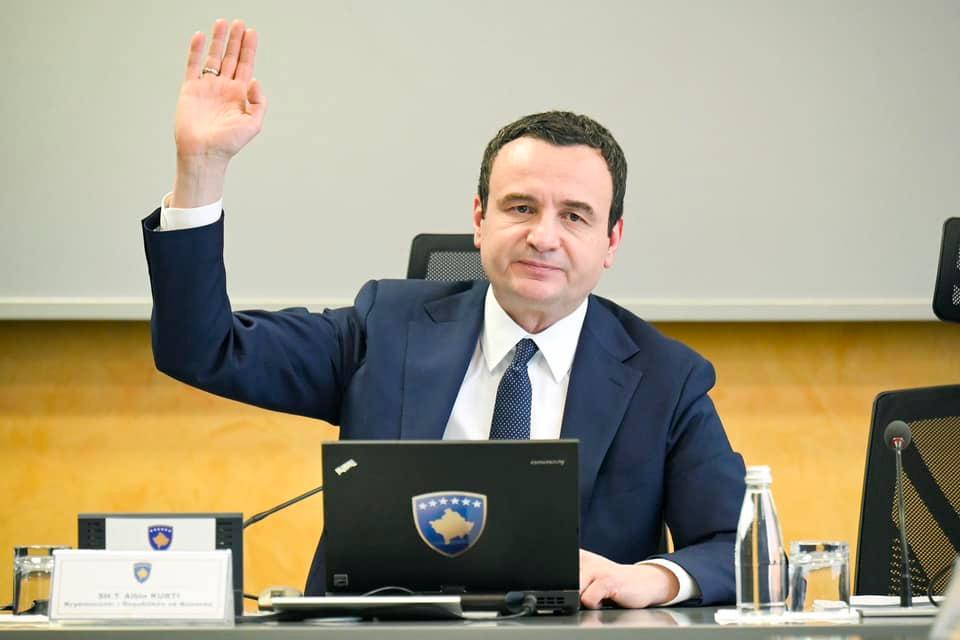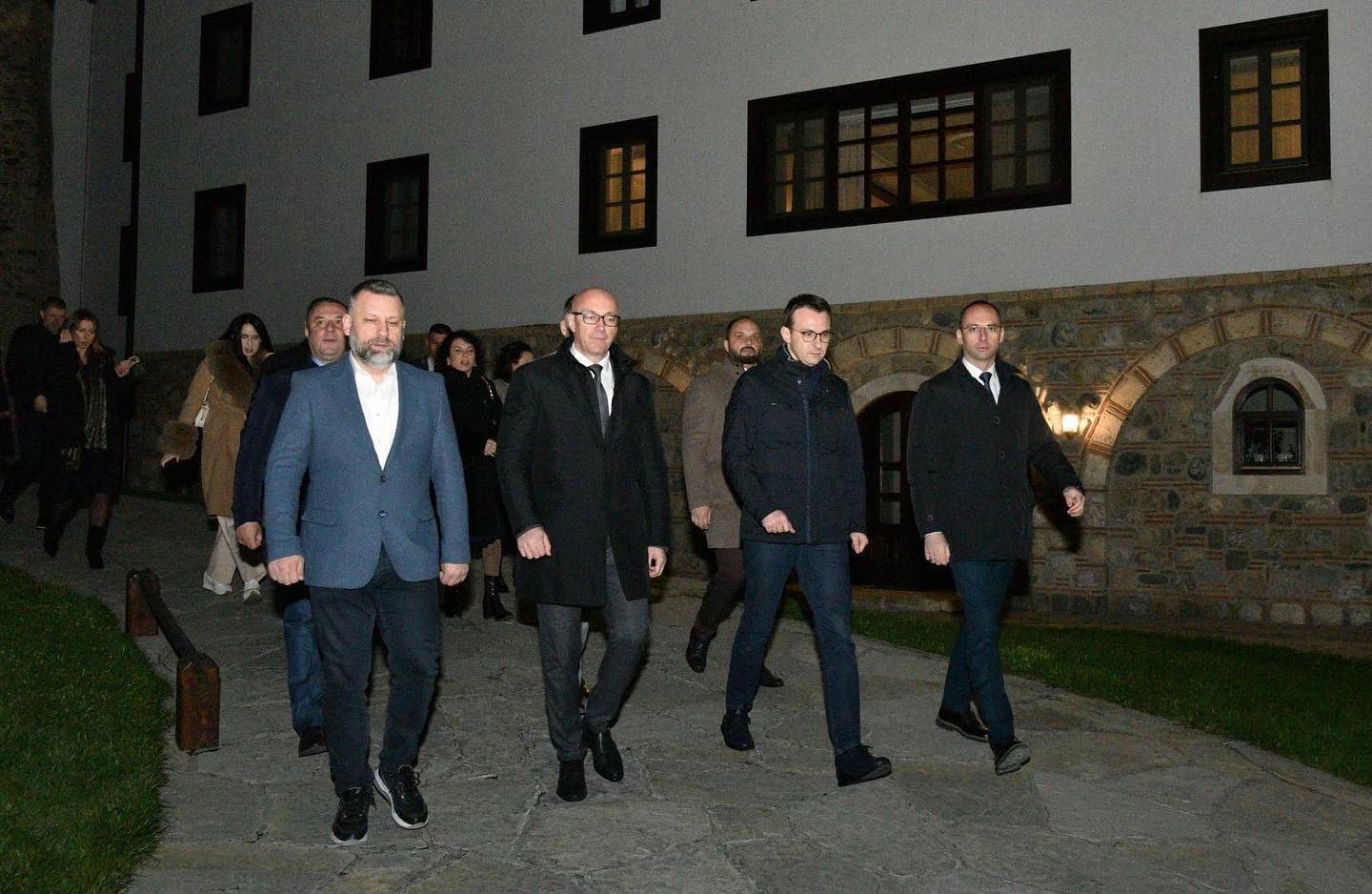
Balkans risk destabilisation again after Sunday's vote in Kosovo
On Sunday, 23 April, local elections will be held in the northern part of Kosovo, where a significant ethnic Serb minority live. Voters must decide about the successors of mayors who resigned from their posts because Pristina failed to meet the demands of Serbs.
Albin Kurti to take over in the north
The election in Kosovo is not expected to be easy and it is unlikely to resolve the situation, as the Serb List (SL), the largest party of Serbs in Kosovo, refuses to participate. The ethnic Serb minority insists that the Community of Kosovo Serb Municipalities should be established first.

Petar Petkovic, head of the Serb government’s Office for Kosovo with the representatives of the Serb List. Photo: Facebook
Ballots will be cast in four municipalities, namely the northern part of Mitrovica, Zubin Potok, Leposavic and Zvecan. Since SL is boycotting the vote, there is a real chance that Prime Minister Albin Kurti’s allies will take office in the areas inhabited by ethnic Serbs, according to Serb press reports.
11 candidates are running for four mayoral posts. There are four candidates nominated by Albanian political groups and one Serb, independent candidate Sladana Pantovic competing to be elected as mayor of Zvecan.
Local Serbs are worried about the current situation. Milan Ivanovic, former director of the hospital in Mitrovica, believes that after Sunday’s vote, Albin Kurti’s allies will take control in these municipalities.
„Albin Kurti will make sure that these municipalities are headed not only by Albanians, but also by Serbs who obey his instructions and implement is policies. Everything has been arranged and this is a rather dangerous situation. All the more dangerous as the new leaders can make numerous decisions that are harmful to the Serbs. They can bring decisions, for instance, on land expropriation, nationalisation, or perhaps even on the full integration of the northern part with the southern part. At the same time, the international community fails to give any response to these ‘democratic’ elections, meaning that they support them. This suggests that Kurti has agreed on this with his Western mentors, and this carries further risks,”
said Milan Ivanovic.
The election process in Kosovo has been dragging on for months. The vote was initially scheduled to take place on 18 December, but the authorities in Pristina abandoned the plan due to pressure from the international community after the situation deteriorated close to a breaking point. This time, however, it appears they are committed to their decision and proceeding with the vote. According to the Kosovo Central Election Commission, there are over 45,000 eligible voters in the four affected municipalities. Due to the announced boycott, the electoral commission has decided to establish a limited number of polling stations, with voting mainly taking place in temporary containers.
While Serbs fear that the elections could destabilise the region, the Pristina premier has asserted that the elections will be democratic and peaceful, emphasising that Kosovo’s institutions are currently making final preparations to ensure this outcome.
„We are cooperating with the international institutions responsible for security and doing our utmost to ensure that everything is done in a smooth, fair and democratic way. We have no information that the situation is destabilising,”
Mr Kurti said.
Belgrade-Pristina dialogue to resume 2 May
Following the elections, diplomatic efforts between Belgrade and Pristina will resume. Serbian President Aleksandar Vucic and Kosovo Prime Minister Albin Kurti are scheduled to meet again on 2 May to discuss the implementation of the settlement proposal, which was originally initiated by France and Germany but has since become a European initiative.
Gabriel Escobar, the US Special Envoy to the Western Balkans, expects concrete proposals from the Pristina side by that date regarding the establishment of the Community of Serb Municipalities in Kosovo, which is a demand of the Serbs. The openness of the Kosovo leadership is indeed crucial, as without it, Belgrade will not fulfill its commitments in the dialogue.
View this post on Instagram
Aleksandar Vucic discussed this with journalists after meeting the Swedish foreign minister in the Serbian capital. The Serbian head of state emphasized that there is no room for games, as the Serbs have been waiting for ten years. Regarding the elections in Kosovo, the president stated on Prva TV:
„This will be a difficult day for the Serbian people and a terrible day for democracy.”
This election will be the shame of Europe, the Serbian head of state added.

